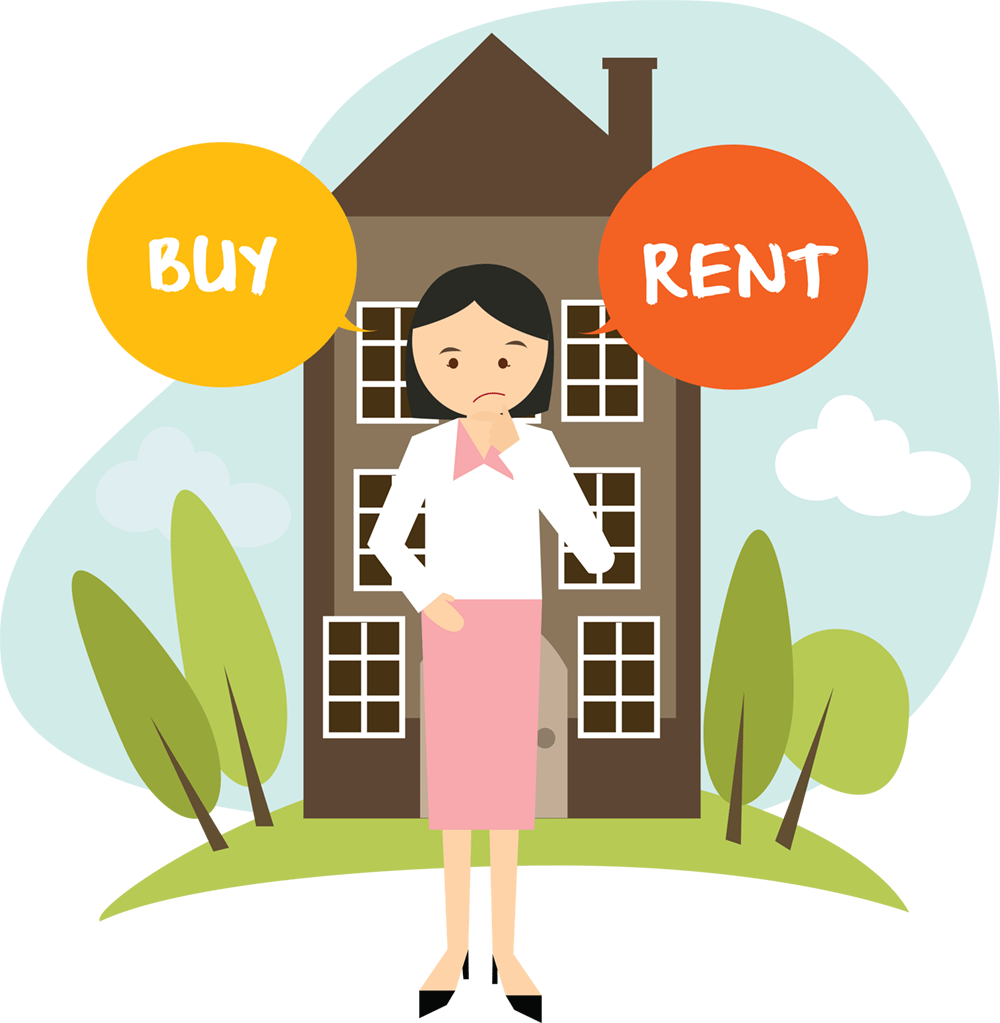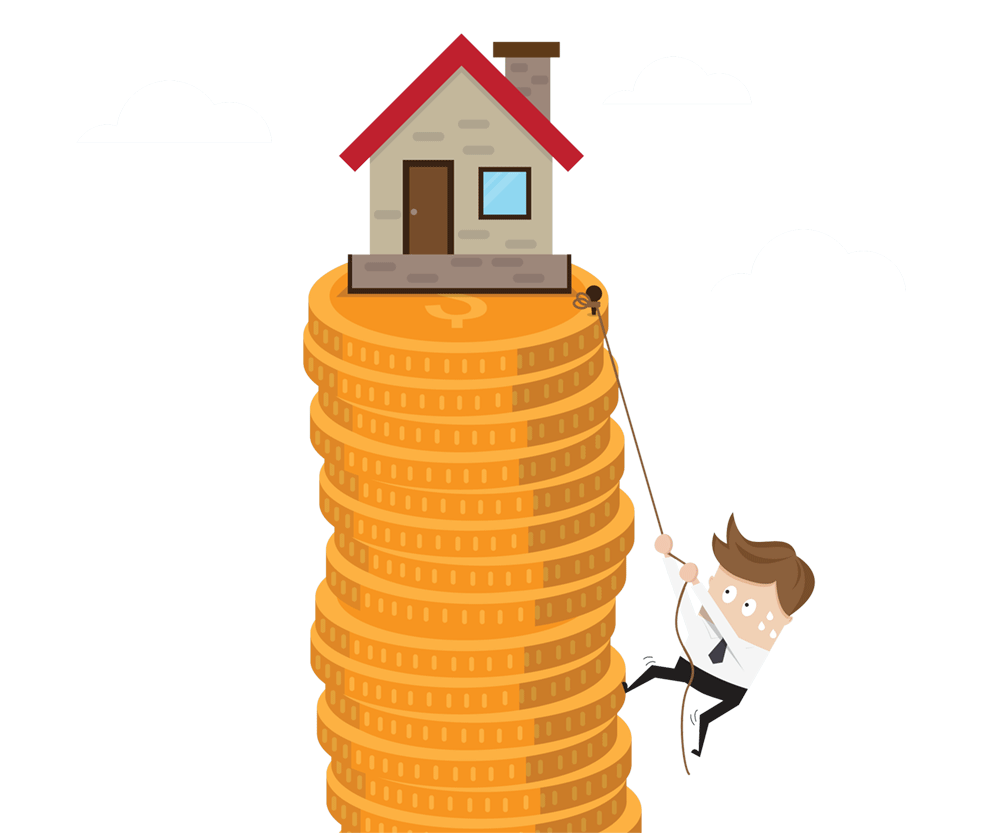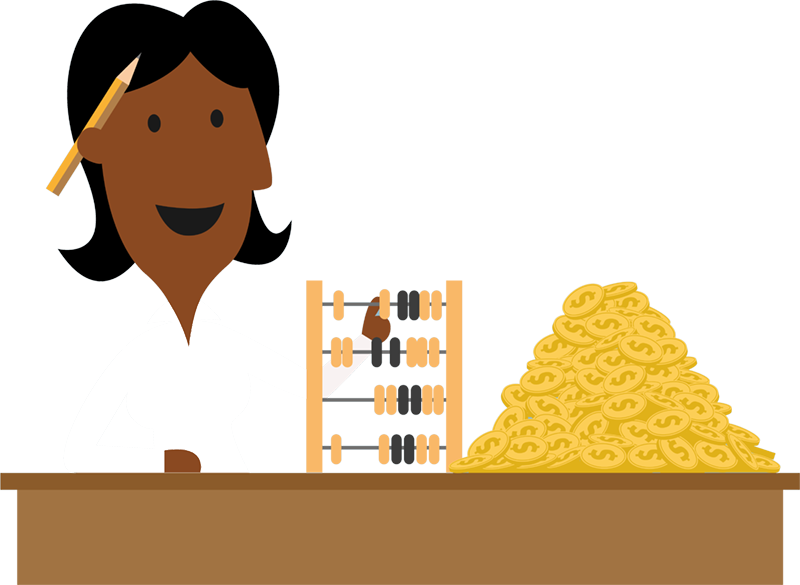A letter to my
three daughters
Dear Daughters,
Mom and I are going on an African Safari. If we get eaten by lions, this letter will convey all you need to know about personal finance in three pages. And oh yeah…please feed the dog.
A) SAVING and INVESTING
Time is your BIGGEST ALLY. Understand the Paradox of Time and avoid the Youth Trap.
Spend less than you make. JUST START by auto-transferring at least $1 per pay period into savings. Ramp that up when you can.
Pay off your debt. If you have credit card debt, student debt or any other type of consumer debt, (excluding mortgage debt), EACH PAY PERIOD, auto-transfer 20% of your after-tax pay into a savings account and then, once a month, pay off the highest interest rate debt until it is gone. Once your highest interest rate debt is gone, move to the next-highest interest rate debt.
Save. If you have no work pension, then you need to auto-transfer 10% of EACH PAYCHEQUE, (salary or gig), into an investment account. If you do this for the rest of your life, you will likely be able to maintain your current standard of living when you retire. IF you want a HIGHER standard of living when you retire, i.e., more travel, bungee jumping, nice car, fancy dinners, etc., you will need to save and invest an ADDITIONAL 10% per year. Yes. Twenty percent. Crazy I know, but better to know this now rather than later, when it is too late.

Save smart. Each year. First, try to max out your contributions to your TFSA account. Second, try to max out your RRSP account contributions as well, and then lastly, try to add to your non-registered accounts. If you are saving and investing 20% of each pay, go ahead and blow your RRSP tax refund on something fun, (assuming your insurance needs are covered – see below).
Invest smart. Invest with low-cost ETFs. Invest in a diversified ETF equity portfolio (TheAnsweris.ca Model Portfolio is one to consider), but be prepared in advance that the stock market and your portfolio value WILL DROP by 20% to 50% at least six to ten times during your investment horizon.
Stick with it. Never sell your equity ETFs during a market downturn. NEVER, NEVER! All money invested in equity ETFs must be left untouched for a minimum of 10 years. FIVE years BEFORE you think you might want to slow down working, move a significant portion of your portfolio into fixed income, i.e., GICs or perhaps a bond ETF such as Vanguards VAB.
B) INSURANCE
IF YOU RENT, you should get tenant insurance. It's cheap.
IF YOU OWN a house or condo, DO NOT buy mortgage insurance from a bank, buy “term” insurance from an insurance company to cover the mortgage balance. It’s cheaper.
Disability insurance – if you have a mortgage or kids, you should have enough disability insurance to replace your after-tax income. Your workplace may include disability insurance in your benefits.
If you have kids, you need life insurance. Buy “renewable,” “convertible,” non-participating,” “term” insurance. This will provide the highest coverage at the lowest cost. “Whole life,” “universal”, and “participating” insurance policies are ALWAYS more expensive and you don’t need their “savings mechanism” as you are already efficiently saving and investing 20% of your annual income.
How much coverage do you need? You should talk to an insurance broker, but here is a ROUGH calculation. Required insurance coverage = outstanding mortgage balance PLUS kids’ education fund, (i.e., number of kids x $100,000), PLUS the ANNUAL amount your dependents need to spend per year multiplied by 30). It is a big number, but at least term insurance is the cheapest available.

C) RENTING VERSUS BUYING
Our generation has screwed up the housing market (sorry!). House prices are skewed high in relation to incomes and rents. From here, the housing market could go UP, or it could go DOWN. I don’t know. Here is what you need to know.
“Home” is NOT determined by whether you own or rent. There is NO SHAME in renting, and rent control will protect you from rapidly-rising rents, (as long as your apartment is owned by a corporation rather than an individual). Do not buy unless you plan to stay in that house or condo for a minimum of five to seven years; otherwise, the selling costs will eat up most of any house price gains. These costs include realty commissions, legal fees, moving charges, and minor renovations to spruce up the place before selling. If house prices stay the same or decline, you could lose a good portion of your equity.
Still want to buy? Okay, figure out how much it will REALLY cost per month to own the house or condo you think you might want to live in.

Monthly costs include:
- Mortgage
- Condo fees (if applicable)
- Property tax
- Homeowner’s insurance
- Heating
- Electricity
- Maintenance (maintenance estimate = purchase price x 0.5% divided by 12)
- Internet
- Term mortgage and disability insurance (you need these two policies now)
If you cannot first save a minimum of 10% per year (and preferably 20% to improve your standard of living in the future), and then also pay this additional monthly ownership cost, you are buying “too much house.”

Now that you know the REAL cost of ownership, compare that number to the cost of renting a similar house or condo. Include tenant’s insurance as well as heating, electricity and internet if they are extra. Note that you pay no mortgage payments, no condo fees, no property tax, no homeowners’ insurance, and no mortgage insurance. You pay only for minor maintenance. The cost of owning is significantly more than renting.
I know there is “pride of home ownership,” and buying a house allows you to take advantage of the fantastic leverage a mortgage provides, but IF you rent a similar house or condo and INVEST the difference between your total ownership costs and total rental costs, (as part of your annual 20% saving and investing program), you will likely be better off 25 years from now.
Remember, house prices in Toronto and Vancouver are skewed high today, which means future gains may be more limited. By comparison, long-term average equity returns are still expected to be about 7% per year.
C) MORTGAGES
If you buy, the longest amortization you should consider is 20 years. Yes, I know longer amortizations are available and result in lower monthly payments, but the TOTAL cost of your mortgage will be significantly less with 20-year amortization versus 25 years (ask your mortgage lender for printout of a 20- and 25-year amortization schedule). Remember the savings are in AFTER-TAX DOLLARS. If you can afford it, opt for bi-weekly mortgage payments.
If you and your partner have steady jobs, consider using a variable-rate mortgage; they typically end up being cheaper than fixed-rate mortgages. If money is tight when you buy, opt for a fixed five-year rate mortgage to provide expense certainty.

E) WILLS
GET ONE, especially if you have accumulated some assets, are in a long-term relationship, or about to have kids. While it is possible to use your Googlizer and download a do-it-yourself will, it can be easy to make a mistake on your will such as; not witnessed properly, unclear language or no affidavit of execution. Hiring a lawyer may be a wiser route, and a basic will is relatively inexpensive.
F) KIDS
Oh yeah, one last point. If you have kids, you should know they can make you really happy, sometimes worried, but mostly VERY PROUD.
Use the Canada child benefit (also known as the “baby bonus”) – Google “Child and Family Benefits Canada” – and save and invest a minimum of $2,500 per year in a RESP.
IF YOU TAKE CARE OF A, B, C and D, you are well on your way to long-term financial liberty. And you can spend any money left over at the end of the month, guilt-free, on whatever you want, because all the important stuff is already taken care of.
That’s it. See you in a month, as long as we can run faster than the lions!
Love,
Dad
